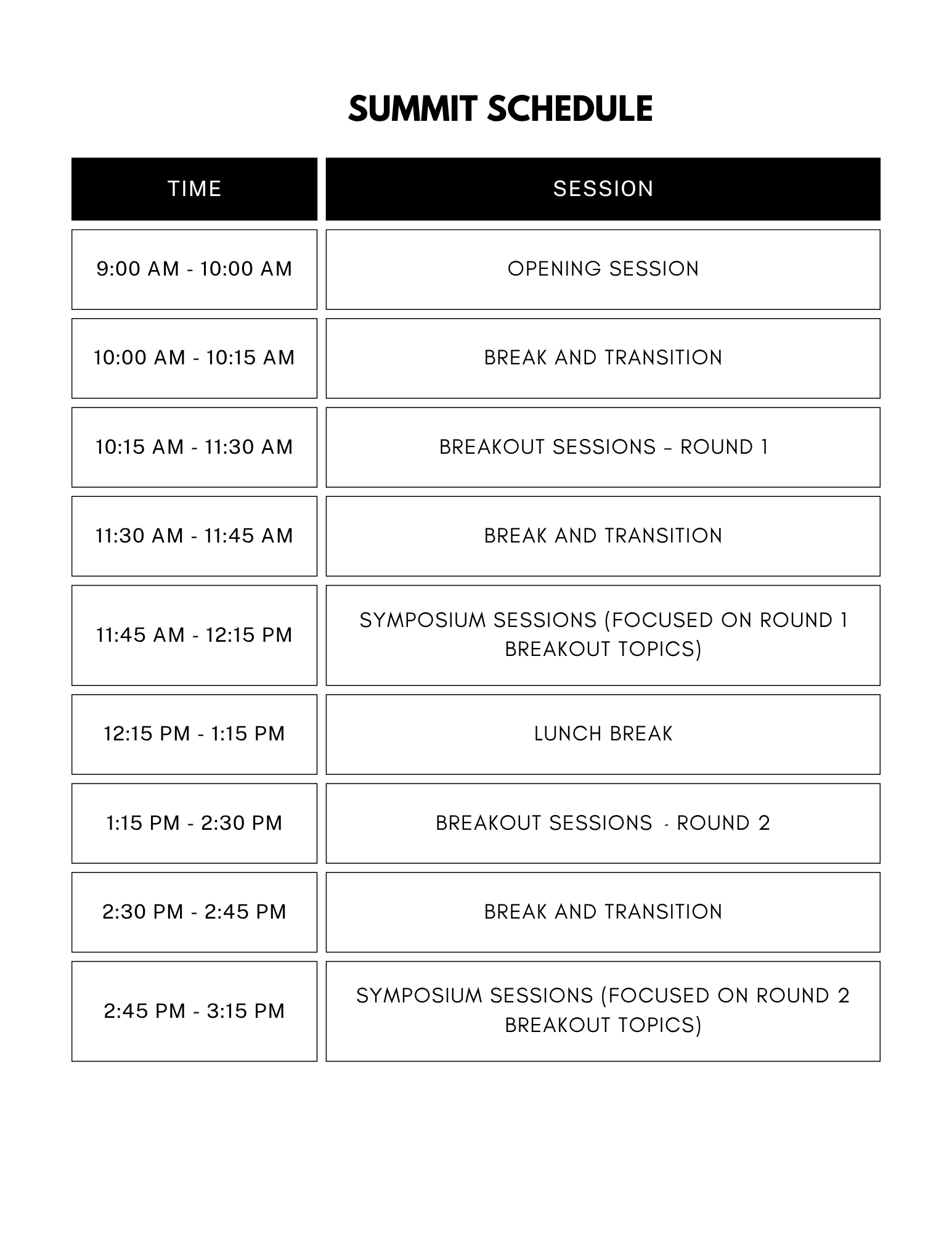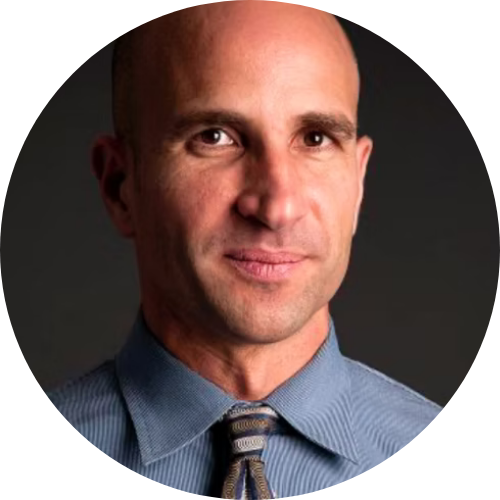Fall 2025 Instructional Coaching Summit
Confronting the need for deep teacher engagement head on
Virtual | November 11, 2025
Fall 2025 Instructional Coaching Summit
The effect of instructional coaching on the implementation of new teaching strategies and school initiatives has been found to be significant in numerous studies. Those studies have led to districts across the nation launching coaching programs and coaching supports within their schools.
The reality of coaching, though, is that without the full engagement of the teachers, the impact of our efforts will stall. While many teachers are eager for the embedded professional learning and support that coaches provide, others view it as "one more thing" or as something that is best suited for those new to the profession.
During the Fall 2025 FIRST Education VIRTUAL Coaching Summit, we will confront the need for deep teacher engagement head on. The Summit will begin with a kickoff session that defines the challenge of teacher satisfaction and engagement with coaching. Participants will learn ways to identify coaching on-ramps with each of their teachers and will begin to plan that work.
The breakout sessions of the Summit will provide real strategies and resources for addressing the current classroom challenges that our teacher face. Each session will be led by experts on topic they will present, ensuring that conference participants are learning relevant and meaningful approaches.
Lastly, symposium opportunities after each round of breakout sessions will engage coaches in peer-to-peer networking facilitated by the breakout presenters. During the symposium sessions, participants will refine their understanding of the challenges their teachers are facing and create their next steps to address them.
By the conclusion of the Fall 2025 FIRST Education Coaching Summit, participants will have a plan of action for engaging teachers in coaching that directly addresses the challenges in their classroom in such a way that leads to learning impact.
Can't Attend Live on November 11? No problem! Registration includes recorded access to the Opening Session and all Breakout Sessions until February 28, 2026.
Event Details
November 11, 2025
9:00 am - 3:15 pm CENTRAL
Zoom Event
Event Recording
This is a recorded event. All sessions will be available until February 28, 2026

Summit Presenters and Sessions
.png)
Kelly Barkovich
Presenter
Beyond the Basics: Coaching SDI in Co-Teaching Classrooms
Special education instructional coaches have a unique opportunity to elevate co-teaching by focusing on Specially Designed Instruction (SDI). In this session, we’ll examine what SDI looks like in practice, discuss how coaches can facilitate teacher growth around it, and share strategies to make SDI a seamless part of instruction. Together, we’ll explore ways coaches can empower co-teachers to create classrooms where all students thrive.

Shelly Daun
Presenter
Navigating Co-Teaching Challenges Through Coaching Support
Co-teaching has the power to transform classrooms, but the reality is that teachers often encounter barriers that make implementation difficult—uneven roles, limited planning time, conflicting instructional styles, and uncertainty about integrating specially designed instruction. In this interactive session, we’ll explore the most common challenges co-teachers face and examine how instructional coaches can provide targeted support to move teams from co-existing to truly co-teaching. Participants will engage in real-world scenarios, identify strategies for fostering collaboration and shared ownership, and learn practical coaching moves that build trust, strengthen instructional partnerships, and keep the focus on student success.

Jenni Donohoo
Presenter
Building Teacher Well-being Through Collective Efficacy: A Coaching Approach
Teacher burnout and isolation are among the most pressing challenges facing schools today. When teachers feel overwhelmed, stressed, or lack confidence in their practice, it impacts not only their well-being but also student outcomes. This session explores how instructional coaches can leverage the research-based concept of collective efficacy to address teacher well-being and professional satisfaction. We'll examine the four sources of efficacy and how coaches can intentionally tap into these sources during coaching conversations and collaborative work. By strengthening collective efficacy, coaches can reduce teacher isolation, build confidence, and create sustainable improvements in both teacher and student well-being. Coaches will leave with specific feedback strategies, reflection questions, and action steps they can implement immediately to support struggling teachers and build a culture of shared success.

Maria Dyslin
Presenter
Coaching That Sticks: Tackling Real Classroom Challenges with Teachers
Instructional coaches are most impactful when their support is directly connected to what teachers are actually grappling with in classrooms. In this interactive session, participants will surface authentic challenges teachers face — from engagement to pacing to differentiation — and practice coaching strategies that are responsive, relevant, and ready to use. Walk away with a toolkit of actionable approaches, tools, and planning templates that can immediately support your coaching practice

Tony Frontier
Presenter
AI tools have the capacity to be used in ways that support - or undermine - student learning and teacher expertise. In this session, we'll discuss guiding principles that support the effective use of AI tools. Then, we’ll consider a series of reflection questions that can be used in a variety of coaching protocols to support teachers’ efforts to ensure AI tools in ways that are intentionally aligned to their students’ learning needs. Finally, participants will learn how to use a series of questions to help teachers support their students’ efforts to use AI tools – and other sources and resources - with integrity.

Gabe Hackett
Presenter
Coaching for Impact within PLCs
Instructional coaches play a key role in helping collaborative teams move from planning discussions to rich dialogue about the instructional strategies that lead to impact in the classroom. In this session, coaches will explore tools and strategies used to support PLCs in order to set clear goals, use real-time student evidence, and adjust instruction for improved outcomes. Learn how to support all team members within a PLC, design effective instructional strategies, and build collective efficacy so every meeting drives meaningful change for students.

Danica Lewis
Presenter
Leveraging Conversations and Feedback for Teacher Empowerment and Academic Growth
More and more, schools are learning that real, sustainable academic improvement requires support for teachers that goes beyond what the typical teacher in-service day can offer. When teachers have access to intentional, job-embedded coaching, they are more likely to take on new practices and to stick with those that work for the long haul. This coaching can be provided by a skilled Instructional Coach or a collaborative School Leader. In this session, we will work through several strategies for questioning, feedback, and conversation that can be leveraged by coaches and leaders to empower teachers as they develop classroom instruction that drives student learning and growth. Participants will walk away with ready to use tools that will make a difference in the success of teachers and students.

Becky Peppler
Presenter
Instructional Coaches play a pivotal role in helping teachers strengthen assessment practices that truly support student learning. In this session, coaches will explore how the High-Quality Assessment Protocol can serve as a coaching tool to guide teachers through meaningful reflection on their assessments. Coaches will also gain strategies for supporting alignment between standards, learning targets, and classroom assessments.
By the end of the session, participants will leave with practical tools and approaches they can immediately incorporate into their coaching conversations to foster teacher growth and enhance student learning

Julie Wright
Presenter
Flexible, Side-by-Side Coaching: Maximizing Teacher and Student Growth
Growth and success doesn’t come with a one-size fits all. That is true when working with students and equally as true in our coaching work with teachers. Join me in this talk-about-it-today, put-it-into-action-tomorrow session where we’ll explore how to design coaching experiences using a needs assessment, coaching menu, office hours, and more!
Asset-Based Learning Walks: Making an Impact One Step At a Time
Truth: Sometimes coaching work can go sideways because, despite our best intentions and the urgency around student growth, professional learning can feel more like “fix it mode” versus collaboration and support. One way to shift gears, while building capacity, is to take advantage of Asset-Based Learning Walks. Join me to learn how to use teacher, student and classroom assets to move coaching to the next level.

